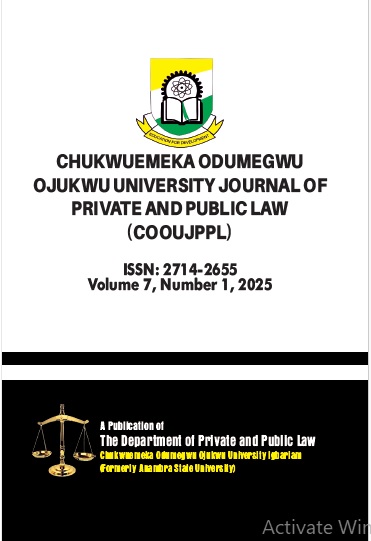DOES THE OIL PIPELINES ACT OF NIGERIA EXCLUDE COMMON LAW CLAIMS IN RESPECT OF DAMAGE RESULTING FROM OIL-RELATED ENVIRONMENTAL POLLUTION?: A CRITIQUE OF THE DECISIONS IN THE BODO AND OGBU CASES
Abstract
Case law in Nigeria reveals that for decades, civil liability for oil-related environmental damage has always been established through two principal channels. The first is the common law principles of tort, consisting of nuisance, negligence and the rule in Rylands v. Fletcher. The second channel is that provided by statute law, with the primary statute being the Oil Pipelines Act (OPA) of 1956. This judicial approach appeared to remain unchallenged until 2014. In 2014, in the case of Bodo Community v. The Shell Petroleum Development Company of Nigeria Limited [2014] EWHC 1973 (TCC) (instituted in England in respect of oil spills that occurred in Nigeria), The English High Court interpreted the Oil Pipelines Act as having excluded common law claims in respect of oil spill damage emanating from oil pipelines licenced under the OPA. Subsequently, in Nigerian Agip Oil Company Limited v. Ogbu (2017) LPELR-45217, the Nigerian Court of Appeal approved without reservation the decision of the English High Court on the issue. This article responds to these judicial decisions. Using the provisions of the OPA (which was saved by the Petroleum Industry Act 2021) as a springboard, the article critiques the decisions in both cases. Through an analysis of the decisions vis-à-vis the provisions of the OPA, the article demonstrates the fallacies inherent in the argument that the OPA excludes common law claims for damage resulting from oil-related environmental pollution. The analysis contained in the article remains relevant because the issue has neither been argued before nor resolved by the Nigerian Supreme Court in subsequent cases.

